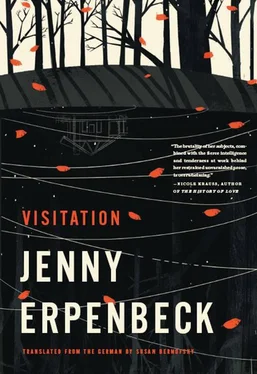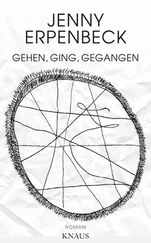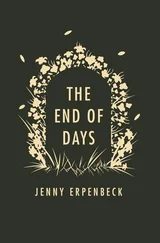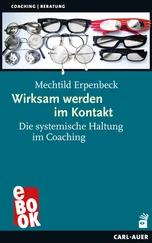THE MAIN THING is that here she can go swimming again. Even if the first time she visits she doesn’t know the little pieces of porcelain on the table are for resting one’s silverware on between courses. Nor does she succeed in eating her breakfast roll with a knife and fork, which she’d hoped would compensate for her gaff e at lunch the day before. Both misunderstandings produce the same silent smile on the face of her hostess, accompanied by the same light touch of the hostess’s cool hand on her forearm. This bread, the hostess says, is so precious that it’s perfectly all right to pick it up in one’s hands. Back where she comes from she never had to lose any thought over whether or not the bread was precious enough to touch. She’d planted the grain herself, and when she reached out her hands, it was always with the same gesture, from the sowing of the seed to the harvest and baking to the eating of the bread. But here all that is left to do with one’s hands is reach out for the finished bread: a skin covering some unknown interior like the Christmas goose with its hidden stuffing. Here in this garden, unlike the garden that belonged to her, there is nothing to sow and nothing to harvest. All one finds here are pines and oak trees with shrubs growing slowly in their shade, the gardener waters the lawn, the flowers are all perennials, and the dill for the potatoes comes from the neighbor woman at the end of the sandy road — the little girl is sent to fetch it from her. Everyone who spends time in this garden does so only in order to be in a garden. Probably she has now reached the right place at the right point in her life, for she too is spending time in her life only in order to be alive. In other places, or so she’s heard, old people like her are just stuck up in a tree and left to starve, but nowadays they’re even given money to survive on, even if they’re no longer able to work. Never will she get used to this money that is given her month after month for doing nothing. In this garden there is nothing left for her to do but sit — sit there in broad daylight with her hands in her lap, watching the larks fly to and fro. Stop dawdling, she hears herself crying out in an inaudible voice as she sits there, stop dawdling, just as she would shout out the kitchen window at her daughter when she was indulging in idle gossip with the girl next door — her daughter was to come inside to do the dishes, scale fish or pluck a chicken. Her daughter always came running, but now her own hands continue to lie motionless in her lap, and as she sits here she can hear her husband playing the accordion — her own parents are silent as their grandchildren babble away — and she answers inaudibly, she offers silent words of consolation or sings without a sound or else just simply goes on saying nothing, and the main thing is that when evening comes she can go swimming again in this shimmering green, cool lake, almost like at home.
It’s certainly better, at any rate, to be a stranger among strangers. Once, she had returned from the city they’d fled to at first, walking with her three grandchildren all the way back to the farm, thirty kilometers on foot in the wrong direction, and for a short time had worked as a dairymaid for the Poles who had already taken over the house: she had worked as a maid on the farm that belonged to her. So that her daughter would find her if she were to come back from the labor camp after all. Her little grandson had wanted to dig up the toy tractor he’d buried in a corner of the yard several weeks before when they were leaving, but she wouldn’t let him. Her daughter never came back, but the wedding photo she’d always carried with her made its way back into the hands of her mother after various detours, all tattered now and creased, with notations in Cyrillic handwriting on the back. On her way through the garden to the church, her daughter had gotten her veil caught on the red currant bushes and thus had to get married in a torn veil. For the photograph she arranged the veil in such a way that the tear didn’t show. Her daughter never came home. And so the mother, who now was only a grandmother, set out again for the second time with her three grandchildren. It’s certainly better, at any rate, to be a stranger among strangers than in one’s own home.
The dandelions are the same here as back home, and so are the larks . Now, as an old woman, she has grown into the sentence that her husband always said to her forty years before. The dandelions in her village were the same as the dandelions where he grew up, in the Ukraine, from where he’d come vagabonding along, and the larks too, that’s what he always said. And in Bavaria, from where his great-grandparents had emigrated to Russia, and to where he’d originally meant to return, without knowing anything more about this homeland than its name, there were surely also such dandelions, such larks. Surely her husband’s great-grandparents had at some point or other uttered this very sentence another seventy or eighty years before. She wonders whether the sentences go out looking for people to utter them, or whether it’s just the opposite and the sentences simply wait for someone to come along and make use of them, and at the same time she wonders if she really doesn’t have anything better to do than wonder about such things, what silliness, she thinks, and then she remembers that she doesn’t have anything better to do, she looks at the ottoman on which her crooked legs are propped, it’s upholstered in the same red vinyl as the armchair in which she sits. Probably, she thinks, the sentences all get overtaken sooner or later and are spoken by someone or other, somewhere or other, just as everything belongs to everyone among people who are fleeing — factored over the length of a lifetime, the course of both objects and human beings was no doubt no different from the experience of a refugee. In peacetime it was poverty, during the war it was the front that kept pushing people before it like a long row of dominos, people slept in other people’s beds, used other people’s cooking utensils, ate the stores of food that other people had been forced to leave behind. It’s just that the rooms became more crowded the more the bombs fell. Until in the end she arrived here, in this garden, and when the gong calls her to supper, she finds it quite plausible to think that this gong was already calling to her back then, when she turned her back on her farm for the last time and set off again with her three grandchildren, carrying an eiderdown and with a blue-patterned kerchief on her head. When you’ve arrived, can you still be said to be fleeing? And when you’re fleeing, can you ever arrive?
Her husband died before all of this. When she looks back from his death to the accident with the clover press, it seems to her as if his dying had arrived then already, slipping in through a side door without bothering to identify itself. Even the tearing of her daughter’s bridal veil was a sort of entrance, through a side door, of what was to be, but since that was still the time when all the rest was yet to come, she couldn’t yet recognize it. Now that she is old and living only to be alive, all these things exist simultaneously. Now that she is old, her husband’s injury could be the reason she fell in love with him, and the music he played when he arrived in her village had its roots in his early death, and her daughter, on the other hand, was perhaps already sitting beside her there in the oven, holding her hand when she was pregnant with her, she had been locked up in the oven because she’d fallen in love with that vagabond, the father of the child she was carrying. And this, if you looked at it the right way, was surely the reason he’d come vagabonding along, even before he knew her. As she looks back like this, time appears in its guise as the twin of time, everything flattening out. Things can follow one after the other only for as long as you are alive in order to extract a splinter from a child’s foot, to take the roast out of the oven before it burns or sew a dress from a potato sack, but with each step you take while fleeing, your baggage grows less, with more and more left behind, and sooner or later you just stop and sit there, and then all that is left of life is life itself, and everything else is lying in all the ditches beside all the roads in a land as enormous as the air, and surely here as well you can find these dandelions, these larks.
Читать дальше












